Kinmen Island: Cold War frontline living in fear of attack
Kinmen Island is a quiet backwater off southern China. It is only when you reach the sea that you find clues to the menace that hangs over it.
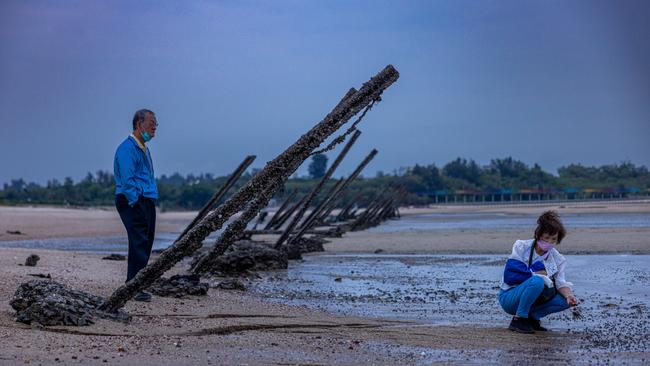
Kinmen Island is a quiet backwater off southern China, and it takes a bit of exploring to uncover the signs of its desperate situation. Tourists on motor scooters trundle between the colourful temples; old ladies in traditional medicine shops sell desiccated mushrooms and pickled seahorses.
It is only when you reach the sea that you find clues to the menace that hangs over the island and has haunted its people for seven decades.
Low tide reveals lines of spikes set into the beaches, designed to pierce the hulls of amphibious landing craft, and broken glass has been set into the rocks above to lacerate the hands of any attackers who manage to get out of the boats — for Kinmen is a Cold War front line, the scene of bloody battles in the past that threatens at any time to explode into a regional, and even a global, conflict.
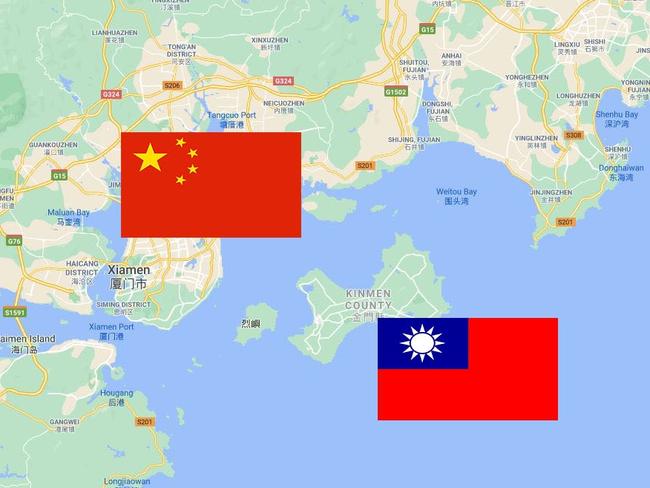
Politically, it is part of Taiwan, the self-ruling island claimed as its own by the communist government of China, but Taipei is more than 300km away, across the choppy waters of the Taiwan Strait. The Chinese mainland, on the other hand, is separated by nothing more than a narrow stretch of water, a few thousand yards at the closest point.
If, or perhaps when, President Xi acts on his threats to take Taiwan by force, Kinmen and a handful of other outlying Taiwanese islands are likely to be the first to be attacked, with incalculable consequences for the 140,000 civilians who live there.
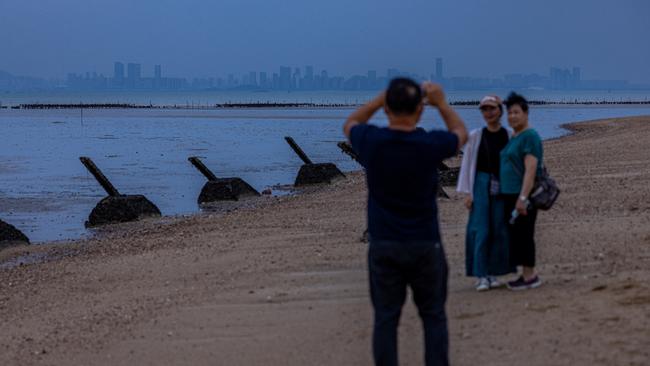
“If nothing sets off a war, then life here is good,” said Chen Shui Tsai, a retired army colonel and former elected magistrate of Kinmen. “But if war starts, it will be terrible. It’s not a question of whether the Chinese can do it, but whether they choose to go ahead.”
To many people, that day feels closer now than it has for a long time. Since the coming to power of Xi, China’s claim to Taiwan has been pressed with increasing aggression, never more so than in the past year. Fighter jets of the People’s Liberation Army (PLA) have flown unprecedented numbers of sorties close to Taiwan’s main island.
A visit to Taipei last month by Nancy Pelosi, the Speaker of the US House of Representatives, prompted PLA missile-firing exercises that effectively blockaded the main island. This month Taiwanese soldiers on an islet off Kinmen shot down a Chinese drone, one of dozens that have flown over military installations in the past few weeks.
The CIA reports that Xi has told his generals to be ready for an invasion by 2027, but if the PLA wanted to express its determination to “reunify” Taiwan and to put pressure on its leaders to give in without a fight, it could seize Kinmen at little cost any time it chose.
It has tried before. As a nine-year-old boy in 1958, Chen spent six weeks living under his house while Chinese artillery shells pounded the island and the PLA attempted to land troops on smaller islets. “The bombs fell there and over there,” he said, sitting in what is now a peaceful garden of trees with a swimming pool. “They fired 470,000 bombs in 44 days. We dug a hole and sheltered in it. In the lulls in the bombing, we ran out and pulled up sweet potatoes to eat. It was terrifying.”
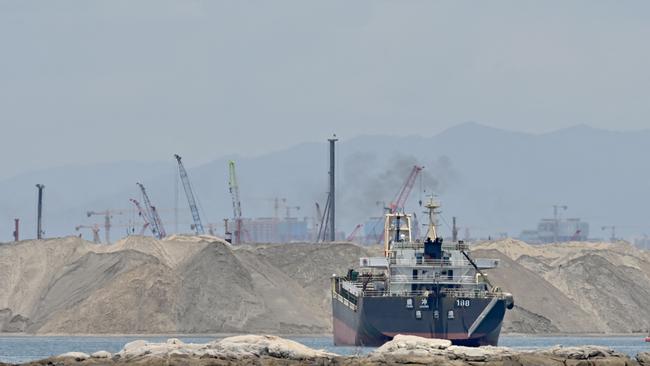
President Eisenhower refused proposals by his generals that the United States retaliate with nuclear weapons, and the Taiwanese held the islands. The bombing continued for 21 years, in strangely gentlemanly fashion: the two sides would bombard one another on alternate days and at mutually agreed times, and the shells, from that point on, contained nothing more explosive than propaganda leaflets, so nobody got hurt.
Today, the situation has been transformed. The Taiwanese garrison has shrunk from its Cold War peak of 100,000 to about 5000. To many this amounts to an acknowledgment that the island is indefensible.
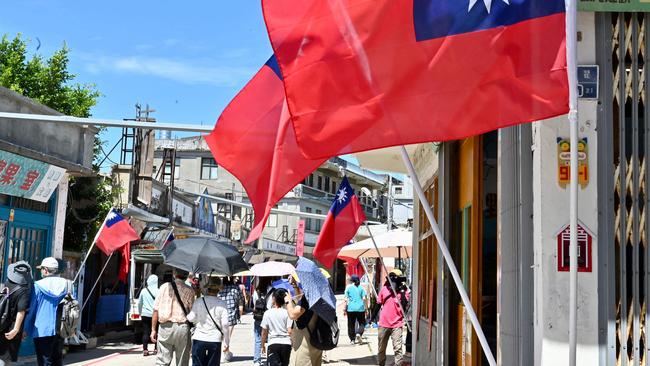
But the relationship between the people of Kinmen and the Chinese mainland is complicated. Rather than old enemies, they are historically the same people, citizens of the Chinese province of Fujian. “Our language, our culture, our way of life are the same,” said Chen, 73. “This situation is absurd.”
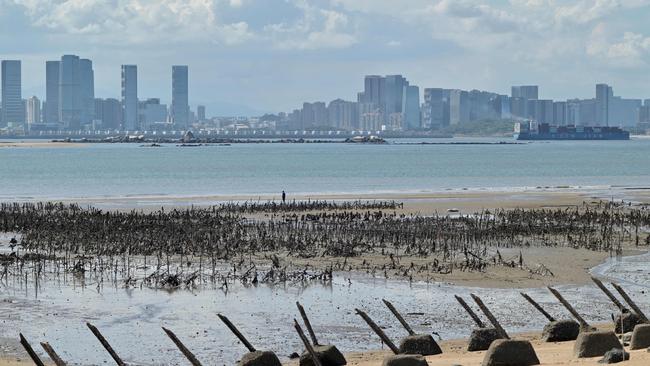
Chen helped to open up links, including a regular ferry service, between the island and the mainland in the pre-Xi years. Chinese tourists poured in; some Kinmenese, including Chen, bought apartments in Xiamen, the Chinese city of five million people across the water.
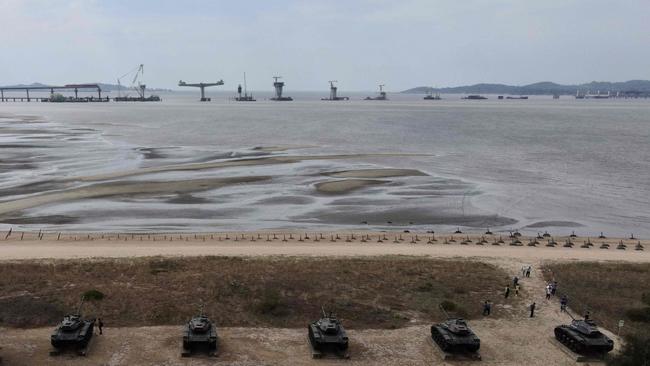
Covid restrictions, combined with the political tensions, have shut down the link. Xiamen is now a two-day journey via Taipei and Hong Kong. “My home over there has been taken over by the mosquitoes,” said Chen, who hasn’t been able to visit for three years. “When we had dialogue, it benefited everyone: China, Taiwan and Kinmen. The relationship became closer, and that decreased the possibility of war. Now both sides are nervous.”
The confrontation has become so institutionalised that islanders have turned it to creative ends. One of the island’s most famous products is high-quality steel kitchen knives, forged out of the countless shells that have fallen on it. Tunnels gouged into the granite to shelter soldiers and weapons have become attractions for tourists from Taiwan’s main island. A group of young people have created a board game based on the islanders’ struggles to survive the 1958 bombardment.
“If they attack, it’ll be over in a single day,” Chen said. “There are just 5000 soldiers here, and they’ll be totally destroyed by the Chinese. I was a soldier for 28 years and I know very well the cruelty of war. It only brings death and destruction. No matter how big China is and how small Taiwan, many people on both sides will die.”
More Coverage
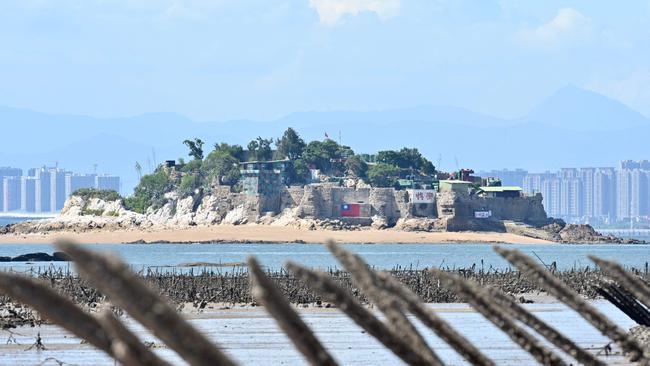


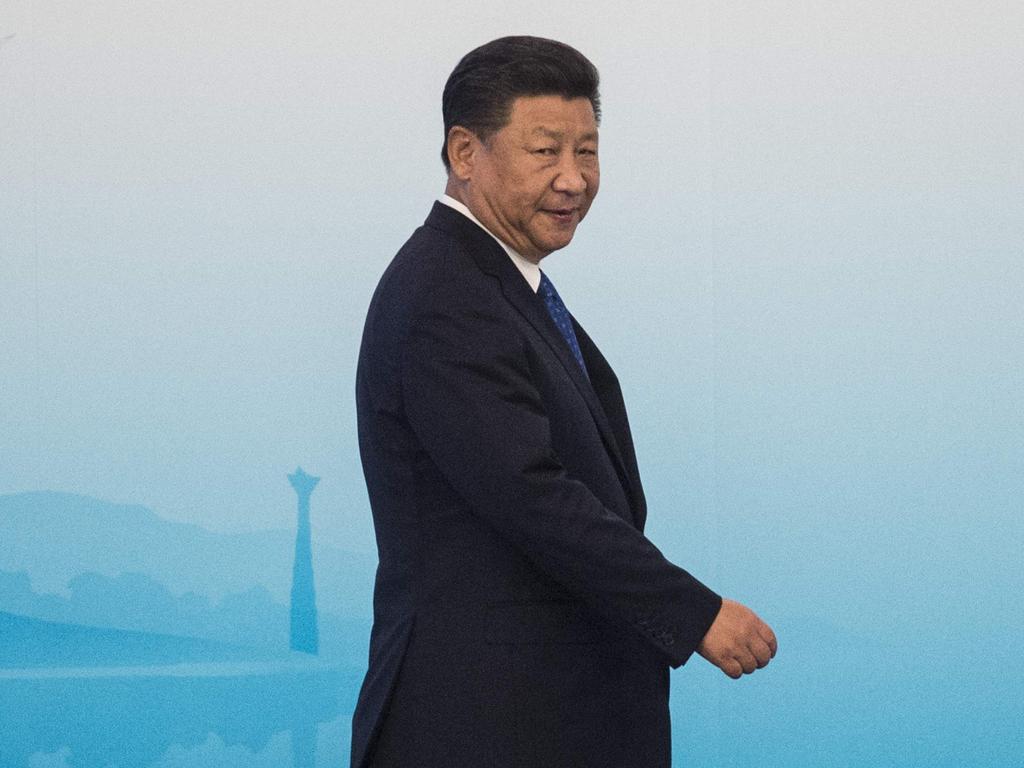


To join the conversation, please log in. Don't have an account? Register
Join the conversation, you are commenting as Logout